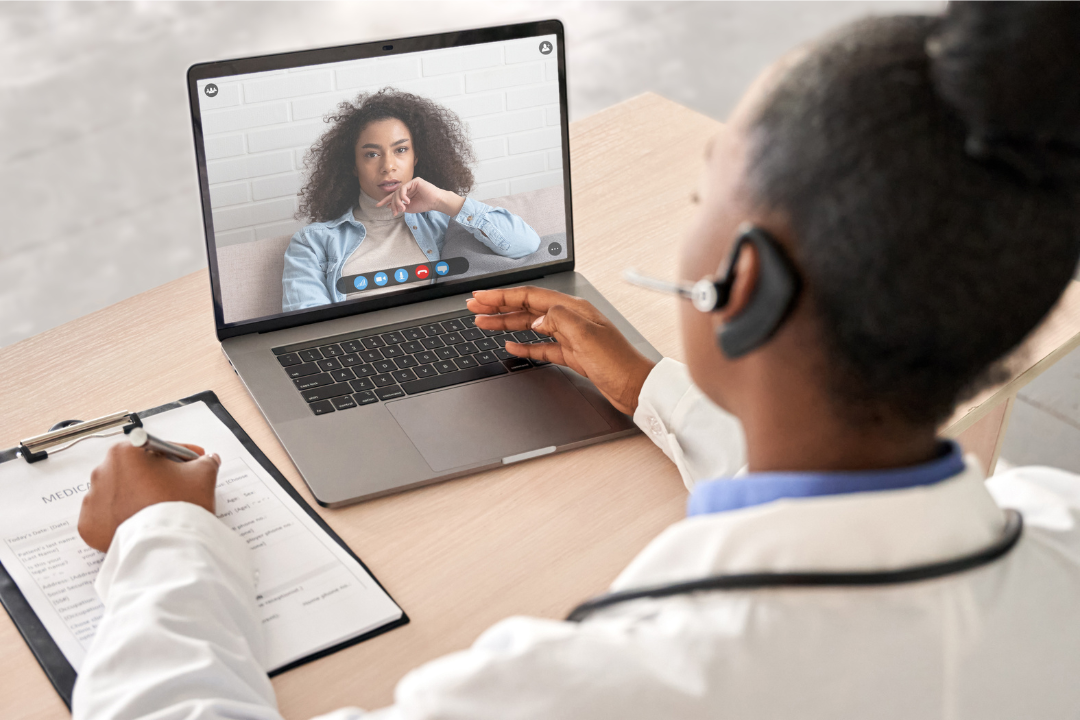Nurses, physicians and other care providers are trained to not say, “I understand how you feel,” because it’s impossible to understand the full dimensions of someone’s experience.
“You really don’t know,” said Adriana Glenn, director of George Washington University’s RN-BSN Program and assistant professor in the GW School of Nursing.
This can be especially true when you’re caring for Black people struggling with kidney disease, she added.
“Not only are you dealing with a kidney disease, but you’re dealing with all that comes with being a Black person in this country,” Glenn explained. “To assume that you know how that feels for any particular individual would be a disaster.”
Instead of saying, “I understand how you feel,” nurses are trained to say, “It sounds as though you’re surprised and maybe also scared by this diagnosis,” then pause and listen. Addressing the underlying emotion in this manner can help a person feel heard and strengthen the relationship between the patient and practitioner.
For patients who are dealing with difficult decisions about a serious illness, the stakes are even higher. When these conversations are held via phone or video conference, the provider’s usual ways of showing empathy are limited. Gestures such as a gentle touch or handing a patient a tissue aren’t possible, so the challenge is to find a way to build trust and have a meaningful conversation about the person’s care goals regardless of the platform.
Glenn is currently updating “E-empathy: How to Convey Empathy in Goals of Care Conversations Using Telehealth for Persons with Kidney Disease,” a guide for providers and patients with chronic kidney disease, to make it “more culturally reflective” of the experiences of Black people.
Elizabeth Anderson, assistant professor at Western Carolina University, and her colleagues developed the original guide during the coronavirus pandemic as the use of telehealth expanded. The guide, which is part of an online course for social work credit, describes the components that build or impede empathetic telehealth communication, such as empathy skills, relationships and trust, nonverbal communication, biases, conversations and supportive networks.
An interracial group of health-care providers, patients and community leaders is advising Glenn to ensure that values such as respect, trust and the social determinants of health (i.e., where a person works, lives, eats, plays and worships) take precedence in her reframing of the empathy guidelines.
Dale Lupu, a research professor in the School of Nursing whose research is focused on expanding the integration of palliative care into care of patients with kidney disease and who helps lead the Coalition of Supportive Care for Kidney Patients (kidneysupportivecare.net), is serving as Glenn’s mentor.
Lupu, a specialist in palliative and hospice care, which in its early years focused primarily on cancer patients, said she discovered “a black hole of need” in the kidney care community. Patients, especially those who were seriously ill, wanted to talk about what to expect, but staff were afraid to “take away hope” and did not have the communication skills for such conversations.
Telehealth has been around for decades, but the global coronavirus pandemic accelerated the use of technology as a means of communication between patients and providers, said Lupu, who recalled hearing the distress in the voices of nurses and physicians, as well as the relatives of patients.
“Providers were saying, ‘I’m trying to counsel family members on what to do about a family member who was healthy two days ago and is now on a ventilator via telehealth,’” she said.
Glenn caught Lupu’s attention with her dissertation on mothers who use the internet to seek out information and support after their children are diagnosed with a rare disease, a subject with which Glenn, whose daughter was born with the rare Alagille syndrome, was personally familiar.
Lupu asked her to do a qualitative analysis of the My Way Project, which aims to develop and test an advance care planning intervention for patients with chronic kidney disease cared for in outpatient nephrology clinics.
“I began to learn more about [Glenn’s] interests, especially in the Black community and underserved communities,” Lupu said. “I wondered what sensitivities we were overlooking.”
Black people comprise 13% of the population of the United States, but represent 38% of those with kidney disease, which is linked to high rates of diabetes and hypertension. Consequently, the COVID-19 pandemic also disproportionally impacted the Black population.
“Every one of my friends who is African American knows someone who has chronic kidney disease,” Glenn said.
In adapting the empathy guide for Black communities, Glenn stresses the need to involve the larger community. In Western culture, health care often focuses on the individual and the relationship between provider and patient, but for Blacks and people from other cultures, health care is a collective decision.
“Others might just consult with their husband, which is the same within the Black community, but they also have a wider network, for example faith healers, who are significant in some Black communities, that they might want to have present or be part of the conversation,” Glenn said.
Glenn said that working with Lupu on the empathy guide for the Black community has allowed her to study the use of the internet in health-care communications in a way that she had begun to find “too close to [her] heart” following her daughter’s death.
Lupu has also helped guide Glenn through “a huge learning curve in the terminology and experiences” of nephrology, and Glenn said the collaboration has taught her the value of effective communication in “stepping outside the comfort zone.”
“She has been a wealth of information, a sounding board and guide for me,“ Glenn said of her mentor. “We both like learning, and the fact that we bring different approaches and … this whole new lens [on underserved communities] out to more people, I think that’s been lovely to see.”
The study, "A Nurse-Led Approach to Testing and Adapting a Telehealth Guide for E-Empathy" is scheduled for completion by early 2023 and was funded by the Rita and Alex Hillman Foundation.




